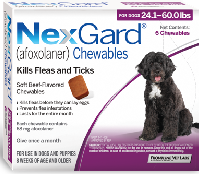





HOME | About Us | Services | Resources | Contact Us
Any and all information on this web site or related links should not be considered a
substitute for professional veterinary advice, diagnosis or treatment or for veterinary advice
relative to a specific condition. Always seek the advice of a qualified, licensed veterinarian provider.






We want to provide your pet with the best protection against serious infectious diseases. We will discuss our specific recommendations based on age, general health, lifestyle and risks of infection to help you make informed choices. Throughout your pet’s life these factors will vary, vaccine technology will change, and we will reevaluate the best strategy for your pet.
We currently follow recommendations set forth by the American Animal Hospital Association (AAHA) and the American Veterinary Medical Association (AVMA).
These recommendations include the following:
Canine
Core Vaccines are those vaccines which every dog should receive, regardless of lifestyle and exposure to other dogs. These include rabies, distemper and parvovirus. These are given as a series of vaccinations as a puppy (or, in the case of rabies, as a single dose), then boostered as an adult.
Non-
Bordetella or “kennel cough” Vaccine: This vaccine helps protect dogs against some forms of contagious bronchitis, and is recommended for dogs that stay in boarding facilities, go regularly to groomers, visit dog parks, attend dog shows or obedience classes, or frequently contact other dogs.
Leptospirosis: This disease occurs sporadically in the United States, usually in the summer or fall, and is caused by various strains (serovars) of a bacteria. Infected dogs often have a fever, do not eat well, may vomit, and may suffer liver and kidney damage. This disease, even when treated, can be fatal. We would be glad to discuss the risks of these diseases in our area to help you decide which vaccines are right for your dog.
Feline
Core Vaccines include distemper (feline panleukopenia), calicivirus and herpesvirus (feline viral rhinotracheitis). These are combined in the “feline distemper” vaccine, given as a series of vaccinations as a kitten then an “adult booster” a year later. The current recommendation for adult cats is a distemper booster every 3 years after the first adult booster.
Rabies is also recommended for every cat. Kittens get one dose, then a booster a
year later. For cats we use the non-
Non-
